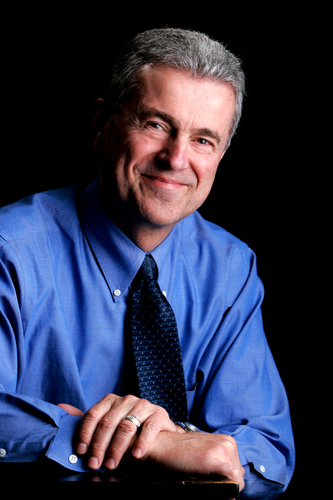As St. Thomas goes about setting goals, defining standards and making adjustments in an increasingly competitive higher-education market place, I trust that great teaching for undergraduates will be at, or near, the top of any list. The engine that will power St. Thomas in decades to come is the quality of its teaching: engaging students, encouraging passion, prompting inquiry and inspiring discussion.

Dave Nimmer
When I was adviser to The Aquin years ago, reading copy with its young editors on a Wednesday night, I couldn’t help but overhear their candid opinions of professors who were teaching their classes. On a few occasions, they had some withering comments. Most of the time, however, they talked about teachers they liked, and a name I heard frequently was psychology professor John Buri.
So when sophomore Ali Jacobsen told me she was going to take the Psychology of Marriage and Family course over January Term this year, I asked her to take a few notes about Buri’s teaching. I never sat in on one of his classes and had wondered how he made such positive connections to students.
Jacobsen is a good student: conscientious, responsible and responsive. She wants to be a teacher and can appreciate the art and craft of managing a classroom. She’s also a student who usually is not the first to put her hand in the air to ask a question or volunteer an opinion.

Dr. John Buri
“He talks openly about his own life,” she wrote, “making students feel comfortable and willing to do the same.” This was not a class, however, of anecdotes and war stories. Buri uses two texts, including Human Intimacy: Marriage, the Family and Its Meaning. The book, according to its publisher, discusses the characteristics of successful intimate relationships and teaches skills that lead to strong marriages and families. The 624-page text also covers topics such as diversity within families, gay marriages, cohabitation, gender roles, theories of love, date rape and courtship violence – as well as parenting and life stages.
Jacobsen read the book and appreciated the ways that Buri related topics on the printed page to instances in real life, “making the class interesting and worth going to every day.”
“He shows concern and interest in all of his students, making each student feel comfortable and welcome,” Jacobsen wrote. Buri also impressed her with his knowledge of the subject – answering almost any question a student would ask – and his willingness to look deeper into anything that intrigued the class.
Most important of all, she concluded, he “creates a safe environment to share within the classroom, allowing students to make connections with one another and become closer.”
Students talking to students in class! How sweet it was when it happened in one of my news reporting classes: It’s Tuesday, gang, and Russia just annexed the province of Crimea. How big of a story is this for your local readers (or viewers)? Where do you want to go, to whom do you talk and what do you want to know?
That’s when a class comes alive. That’s what happened for Ali Jacobsen. I don’t know what her final grade was. I never asked.







